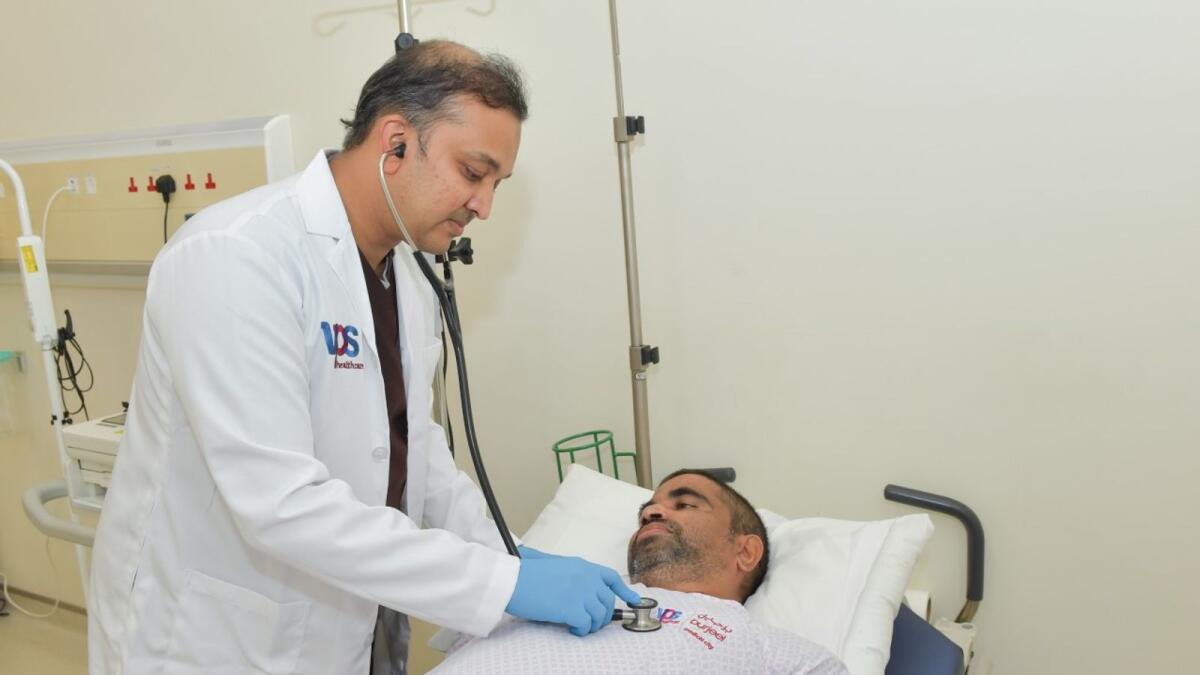A 33-year-old expat in Dubai Silicon Oasis miraculously survived three sudden cardiac arrests in just one hour due to the quick actions of the medical team at Aster Clinic. The patient arrived at the emergency room with severe chest pain and collapsed during initial testing, leading to the first cardiac arrest. The Emergency Response Team immediately performed CPR and defibrillator shocks, successfully reviving the patient each time his heart stopped, ultimately saving his life.
Early intervention played a crucial role in the survival of Ameer Hussain, a 38-year-old kitchen helper in Sharjah. With a family history of heart disease, Ameer sought medical attention when he experienced severe chest pain. Tests revealed heart damage, and he underwent Percutaneous Coronary Intervention (PCI) with three stents placed to restore blood flow. Dr. Sony Manuel M emphasized the importance of recognizing warning signs and seeking prompt care for better outcomes, emphasizing lifestyle changes for heart health maintenance.
As cardiovascular diseases remain a significant health concern globally, regular heart health screenings for adults aged 40 and above are crucial, according to cardiologists. Dr. Mohamed Ahmed Mohamed Fathi advised earlier screenings for individuals with risk factors such as family history, diabetes, high cholesterol, or hypertension, as they are more prone to heart attacks. Regular check-ups can help identify blockages in arteries, with severe blockages of 70% or more considered life-threatening by Dr. Latifa Al Khouri.
Recognizing risk factors such as obesity, diabetes, or family history is essential for early screenings and managing heart health effectively. Dr. Fathi suggested more frequent check-ups every 3 to 6 months for high-risk individuals, emphasizing the importance of monitoring comorbidities to prevent heart attacks. Immediate medical evaluation is necessary for symptoms like chest pain, shortness of breath, discomfort in arms or jaw, nausea, dizziness, fatigue, or profuse sweating, indicating potential heart issues.
Routine heart health tests, including blood pressure, cholesterol, ECGs, and echocardiograms, are recommended by cardiologists to maintain optimal cardiovascular health. Lifestyle modifications like a healthy diet and regular exercise should complement regular screenings to prevent heart problems. It is crucial for asymptomatic individuals to have their heart health evaluated regularly to detect any early warning signs and prevent future complications. By understanding the risk factors, warning signs, and recommended tests, individuals can take proactive measures to ensure a healthy heart.










